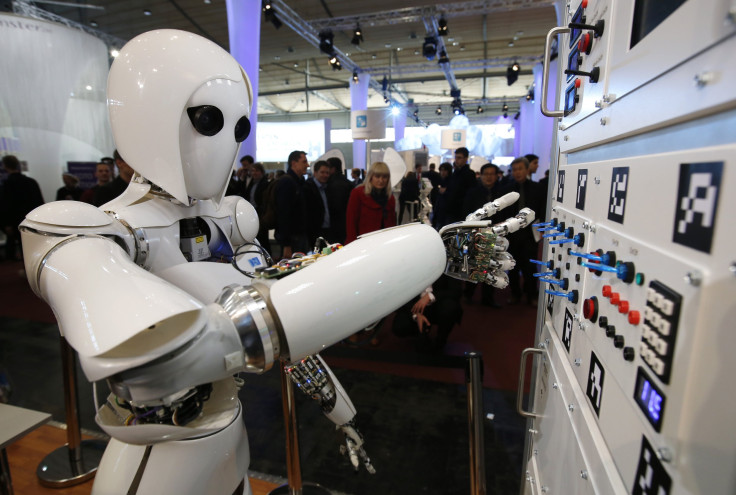Future Robots In The Work Place: Artificial Intelligence Will Require New Laws, Attorneys Say

The coming era of artificial intelligence and automation will drastically change the workplace, and new laws need to exist to keep up with impending changes, an international group of lawyers said Tuesday.
The Global Employment Institute of the International Bar Association released a 120-page report Tuesday, titled "Artificial Intelligence and Robotics and Their Impact on the Workplace." In the report, the legal group warned technological change is outpacing our ability to pass new legislation and install legal frameworks, which means our laws won't reflect the workforce realities they govern if countries don't move quickly to keep up.
Read: China Technology 2017: Artificial Intelligence Research Gets Billions To Develop New Robots, Weapons
"The AI phenomenon is on an exponential curve, while legislation is doing its best on an incremental basis," Gerlind Wisskirchen, one of the report's authors, said in a statement. "New labor and employment legislation is urgently needed to keep pace with increased automation."
The report explores what types of laws countries might adopt in the wake of widespread automation. The authors imagine a marketplace that values "human-made" products like consumers currently value organic or fair-trade goods. Products might need "Made By Humans" labels, for example. Laws could be implemented that require quotas for human workers, or give tax breaks to companies that employ human beings.
The report also discusses the concept of Universal Basic Income. The idea, which has secured an increasing number of proponents, would have the government distribute payments to all citizens in order to combat the massive unemployment that many predict will come from widespread automation. Elon Musk has endorsed the idea, but the report also offers alternative solutions, including laws that restrict workers from working more than 30 hours a week (which would require hiring more workers).
"Governments could introduce higher minimum social standards by revolutionizing the progressive tax systems, distributing subsidies or vouchers or offering rewards/prizes," the authors wrote.
© Copyright IBTimes 2024. All rights reserved.





















